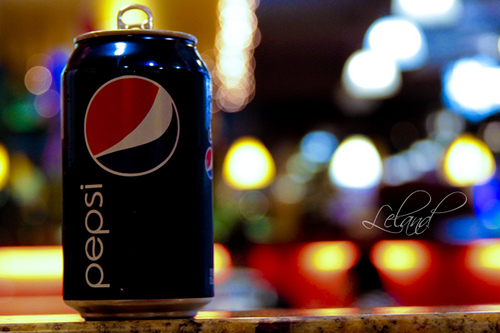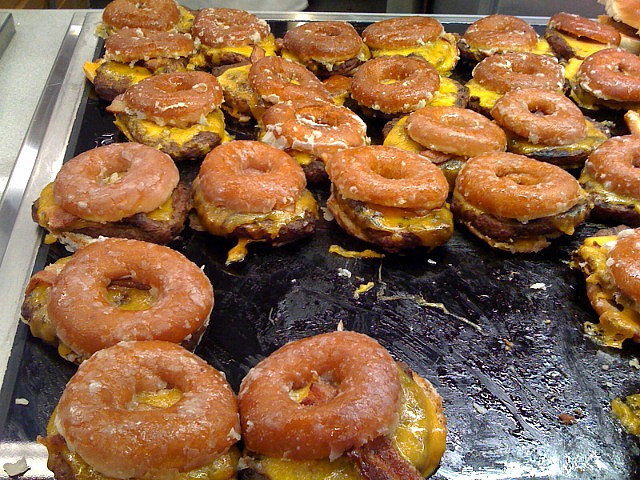In the early part of this week the papers were full of a story about Doctors demanding a “tax on soft drinks” to tackle the obesity epidemic
The tax idea was a headline grabbing part of a 10 point plan that the Doctors involved feel will help reduce the growing rates of obesity among adults and children.
My biggest irritation about most of the points I read was that they seem largely concerned with removing fast food and soft drinks from people’s diets, rather than introducing something more healthy. It mentions that schools attempts to introduce healthy meals were being undermined by the burger van at the school gates, but doesn’t really address the problem as to why the food the school provides is so unappetising anyway (or why the children are allowed out to a burger shop at lunch time, we weren’t allowed off school grounds!)
Most people are fat, and it’s not their fault.
Removing the question about whether you can be fat and fit, it certainly seems that most people who are overweight (and with 60% of adults now apparently obese that would be most people) would like to be a little slimmer. You only have to look at the rising profits of companies like Weight Watchers and Slimming World (this story is from the US, but interesting). So why aren’t they?
For my part a combination of the lack af availability of a healthy option, and a world that has arranged our lifestyles so that it’s harder and harder to eat properly and exercise seem to be huge contributors.
My personal lifestyle issues involve a lot of travel and not being able to prepare my own food. Motorways mean travel doesn’t exactly take us through small villages with lovingly prepared food in a local family run restaurant. The choice for lunch or dinner on the go is a limited one.
For others it’s that office buildings have moved out of town centres to industrial parks so they are less able to walk to work. They need to leave earlier to commute and don’t prepare their own lunches, but why would they when they can grab breakfast and lunch on the go from the fast food locations nearby. Offices don’t always offer kitchen facilities to heat up or keep food chilled, the kitchen with a kettle is now a vending machine.
For some people it’s the “24 hour society” we now live in (Remind me I said that next time I run out of milk at 7pm on a Sunday) which means they work nights or late shifts and their eating is erratic.
It’s human nature to take the easy option. We’re encouraged to think of cooking as an unnecessary waste of time between work, TV, the pub and bed that can be shrunk to the smallest possible time by cooking “30 minute meals” or buying pre chopped onions.
On demand TV, hard drive recorders and the huge number of TV channels mean we no longer tune into watch a show, but instead view the TV as whole evenings entertainment, and cooking dinner as an unecessary distraction, especially when someones just popped a pizza menu through the door.
I used to think of the Big Mac as the biggest of all big burgers, it contains around 500 calories. Now when you go into a fast food restaurant the regular menu is hidden away and we’re confronted head on with banners promoting this weeks super fabulous unique limited edition mega burger containing over 800 calories just for the burger, and do we want the special offer potato wedges with that? I’ve recently seen a pizza menu promoting the fact it has the cities only 20″ pizza.
When food companies are apparently using the same sort of techniques used by tobacco companies in the past to protect their profit margins what hope do we really have as consumers of being able to make a healthy choice. I wonder whether in 30 years time we’ll be seeing lawsuits against food companies, much like those against tobacco companies in the past. Even if you want to make the healthy choice the food companies have spent huge amounts of money on making that as difficult for you as possible.
An organised person, of course, would prepare a whole weeks meals in advance and shop ahead, but those food companies alongside over 60 years of post war convenience culture are doing everything they possibly can to discourage you from doing that. They want you to believe that you are too busy, that it’s easier and just as good to buy their ready meals and that the “low fat” option means the “healthy” option.
So will a tax on soft drinks and moving fast food outlets help? In my (completely unqualified) opinion, no, not unless you provide people with the tools to replace those options with something else, or make that something else cheaper. It doesn’t necessarily sound like a bad place to start however. Anything that discourages the consumption of high amounts of saturated fat and sugar can only be a positive move.
Could an increase in taxation and a ban on ads bring about the same cultural shift as happened with smoking? In future could choosing the burger instead of the deli chicken wrap or salad be socially frowned on, and ordering a pizza become an occasional occurence rather than a regular weekly treat. After all, part of the decline of the popularity of tobacco can be attributed to advertising bans and government backed health based ad campaigns.
I don’t really know, I’m just an overweight girl irritated with my lack of choice, but till something changes we’ll continue to be fat, and it won’t be all our fault.



10 comments for “Is a Soft Drink Tax the Answer?”